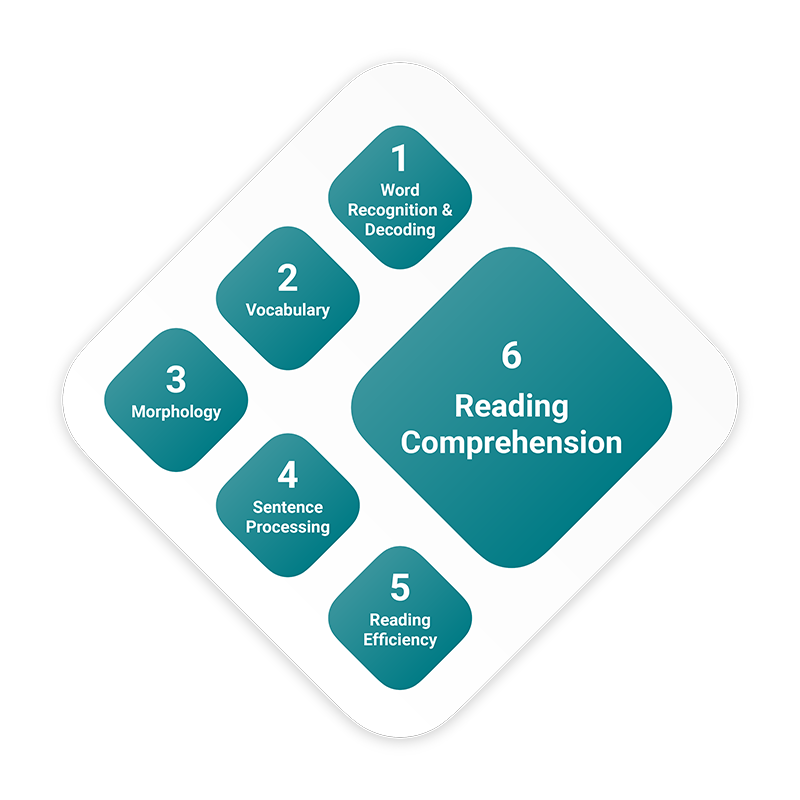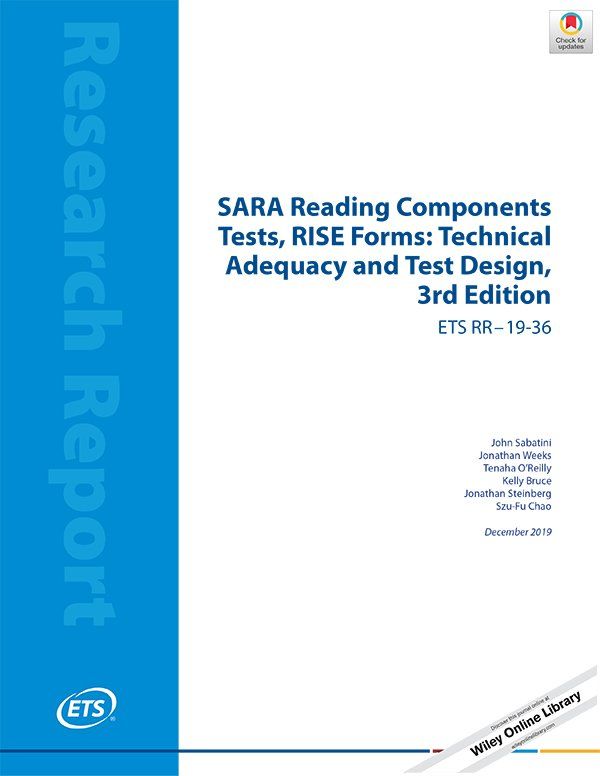Diagnostic Reading Assessment
for Grades 3-12
Identify students struggling with foundational reading skills with this web-based diagnostic reading assessment.
Developed to find specific reading strengths and weaknesses:
- Targeted subtests take an in-depth look at specific foundational components of reading that may be affecting a student's success and holding the student back from becoming a proficient reader.
- These component reading skills are often not measured by other assessments that focus only on reading comprehension.

This ETS-developed assessment is composed of six subtests evaluating six key reading skills.
By the time students reach upper elementary school, they are expected to have mastered foundational reading skills. By fourth grade, students should be "reading to learn," not learning to read. But this is not the reality for many students who continue to struggle with the foundational reading skills well beyond the elementary grades. Capti Assess with ETS ReadBasix was developed to help identify these students and provide teachers with detailed information to target the specific areas in which students are struggling.
Since Capti Assess is a web-based reading assessment, no installation is required. It can be administered either in the classroom or remotely. The first five subtests each take approximately 5–10 minutes to complete. The reading comprehension subtest takes 20–30 minutes. You can administer all six subtests at once or any of the subtests individually to target specific foundational skills.
The assessment also provides scaled scores and grade-level percentiles for each subtest. Score reports indicate student performance levels, making it easy to determine the skill areas in which a student may need extra instruction. Reports also include RTI tier assignment and activity suggestions.
To request pricing or a demo of Capti Assess:
Contact Capti at sales@captivoice.com, 1-888-533-7884 or visit the Capti Assess website.
Note: Until 2020, Capti Assess was known as the RISE (Reading Inventory and Scholastic Evaluation) assessment. The RISE assessment (now Capti Assess) was developed through a SERP collaboration with Educational Testing Service (ETS) and the Boston Public Schools. You may notice references to the RISE throughout the website. Capti Assess includes several enhancements. It has shifted platforms, expanded to additional grade levels, and includes improved administration and reporting features. However, the overall goals and format remain the same.

